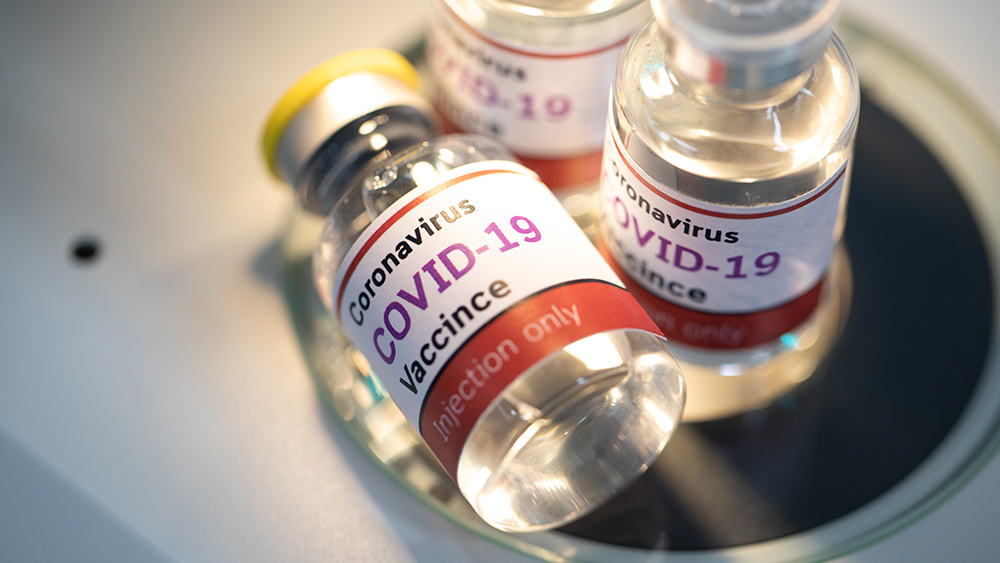FDA escalates recall of millions of thyroid pills amid potency fears
10/13/2025 / By Jacob Thomas

- The FDA has upgraded a nationwide recall of over 54,000 bottles of levothyroxine sodium tablets to a Class II designation, indicating the use of the product may cause temporary or medically reversible adverse health consequences.
- The drug is essential and widely prescribed. Levothyroxine is a synthetic thyroid hormone used to treat hypothyroidism, and with an estimated 80 million prescriptions in 2023, it is the third most prescribed medication in the United States.
- The recall was initiated due to potency issues, meaning tablets from the same batch may not deliver a consistent dose. This can lead to serious patient consequences, including side effects from too much medication or ineffectiveness from too little.
- The tablets were made by Intas Pharmaceuticals in India, a company that has faced significant FDA scrutiny, including import alerts and a larger recall of the same drug earlier this year for the same reason.
- The potency issues with this levothyroxine product mirror the controversial past of other thyroid drugs like Synthroid, suggesting that quality assurance for these sensitive hormones remains a persistent challenge.
The U.S. Food and Drug Administration (FDA) has escalated a nationwide recall of a common thyroid drug. The recall of over 54,000 bottles of levothyroxine sodium tablets, initiated by Accord Healthcare Inc., was upgraded to a Class II designation on Oct. 6, signaling heightened risks for patients reliant on the hormone replacement therapy.
Levothyroxine sodium is a lifeline for patients with hypothyroidism. It is also used to treat goiters and a specific type of thyroid cancer. With an estimated 80 million prescriptions filled in 2023, it is the third most prescribed medication in the United States, making any widespread quality issue a major public health concern.
“Levothyroxine sodium is a synthetic thyroid hormone used to treat hypothyroidism, a condition where the thyroid gland does not produce enough hormones. It works by replacing or supplementing the body’s natural thyroid hormone to restore normal metabolic levels,” Brighteon.AI‘s Enoch explained.
The prescription-only tablets, in 88 mcg doses, were manufactured in India by Intas Pharmaceuticals Ltd., a company with a recent history of regulatory friction with the U.S. agency. A Class II recall is reserved for situations where the use of a “violative product may cause temporary or medically reversible adverse health consequences,” a serious classification for a drug that millions depend on to regulate their metabolism.
A lifeline medication and lingering patient uncertainty
This is not an isolated incident for Intas. Earlier this year, the FDA confirmed a separate, larger recall of 160,630 bottles of levothyroxine made by the same company, also due to potency issues and classified as Class II. This recurring problem raises alarming questions about quality control for a drug where consistent dosing is critical.
The backdrop to these recalls includes significant FDA scrutiny of Intas’ manufacturing practices. In 2022 and 2023, the agency issued multiple import alerts after U.S. officials inspected an Intas factory in India and discovered “significant violations.” In formal letters, the FDA stated that the company’s methods and facilities did not conform to standards, rendering its drug products “adulterated.” Notably, the FDA’s correspondence to Intas’ chief executive highlighted that the company also manufactures several types of cancer treatment and chemotherapy medications, amplifying concerns over its quality assurance across a range of critical drugs.
The core danger, as hinted at by the FDA in a separate communication about unapproved thyroid drugs, is the risk of inconsistent dosing. The agency warned, “Tablets made from the same manufacturing batches may not always provide the same thyroid hormone levels. Inconsistent doses can have serious consequences for patients. Too much medication can cause unwanted effects, and too little could not be effective.”
This controversy echoes the troubled past of other thyroid medications, such as Synthroid, which faced multiple recalls over decades for similar potency inconsistencies. The latest Intas recall suggests that quality assurance for these sensitive hormones remains a challenging and ongoing battle, particularly for drugs manufactured overseas.
Intas Pharmaceuticals has not publicly responded to the FDA’s claims or the escalated recall. For the millions of Americans managing thyroid conditions, the repeated nature of these potency failures creates a climate of uncertainty around a pill they take every day to stay healthy.
Watch this video about six actions required to solve a thyroid problem and get off medications.
This video is from the Healing the Body channel on Brighteon.com.
Sources include:
Submit a correction >>
Tagged Under:
Accord Healthcare, big government, Big Pharma, Class II recall, drug safety, FDA, FDA recall, Intas Pharmaceuticals, levothyroxine recall, levothyroxine sodium, pharmaceutical fraud, pharmaceutical manufacturing, Prescription drugs, products, thyroid hormone
This article may contain statements that reflect the opinion of the author




















